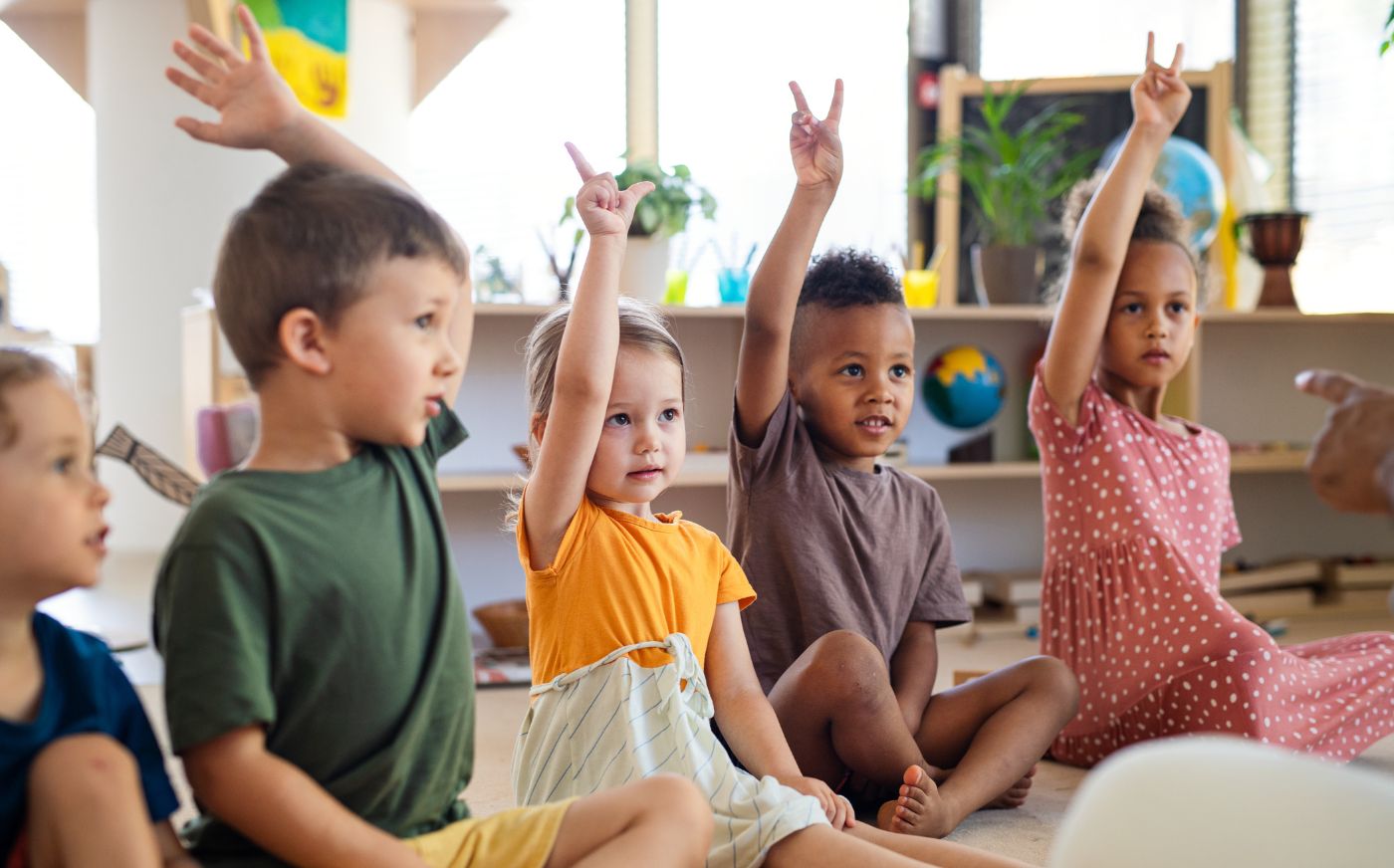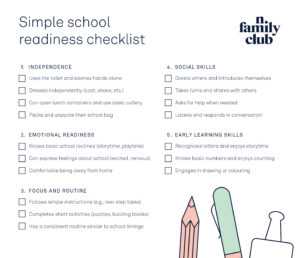Challenging behaviour in children: How to understand and support your child
Parenting comes with a fair share of both joyful highs and inevitable struggles. No matter […]
Read more

Starting primary school is one of the most exciting milestones, and it marks children’s first step into formal education. For parents, transitioning from a UK nursery to preschool can feel monumental, stirring a mix of pride and concern about how well their child will adjust.
This makes “school readiness” an essential focus. The term refers to getting ready for school by building skills beyond academics, covering social, emotional, and practical development for this important step.
In this guide, we’ll cover these key steps and provide a handy checklist to make it easier for parents to track their child’s progress.
Applying for a place is an essential step in getting ready for school. In the UK, applications typically close by mid-January, with decisions announced in April. Parents considering independent schools should check with each school directly, as deadlines and procedures can vary.
Once your child’s place is secured, your nursery may work with the chosen school to help ease the transition. For example, N Family Club invites school teachers to meet children in familiar nursery settings, building connections and making the transition smoother. For more details, see this guide on school applications.
The first step of your child’s preschool prep is to build confidence and encourage independence. While their nursery experience likely provided a foundation for these skills, they may still need extra support in mastering essential self-care tasks and day-to-day school responsibilities.
Outside of simple practicality, building self-care skills is a key aspect of school readiness, as it helps children feel capable and confident. Children learn through play. So, turning these tasks into games or fun routines can make learning each skill enjoyable and memorable.
Encourage self-care through play:
Dressing is one of those daily tasks that can feel like an Olympic event for parents, but teaching your child to get dressed and change on their own is a key aspect of getting ready for school. Besides, it makes mornings smoother and less stressful for everyone.
Set them up for success with easy-to-wear clothing:
Practising small responsibilities is an essential step in ensuring children’s emotional readiness and teaching valuable habits they’ll carry into the future. Every time they successfully tick off a task, it brings a sense of accomplishment. That’s why these little routines make a big difference in getting them ready for the school environment.
Establish small routines to build responsibility:
Along with learning self-care skills, it’s just as important to help your child prepare for “big school” by working on their social skills. This can help them feel more at home in their new environment and create a positive connection with going to school each day. Start with common social situations they’ll face, like making friends, sharing their ideas, handling small conflicts, and listening to others. These simple but powerful skills can set the foundation for happy, positive interactions in the classroom.
Elements of social skills and how to develop them:
Another element of school prep and building confidence is teaching your child basic literacy and numeracy skills early on. These foundational academic skills go beyond letters and numbers – they’re about nurturing a love of learning, curiosity, and independence in a fun, supportive way.
Children naturally have shorter attention spans as their brains are still developing focus and impulse control. In school, they’ll need to sit, listen, and engage for longer periods – a challenge for children just out of nursery. Parents can help by introducing activities that gently build their concentration skills, setting them up for a smoother transition.
Foster concentration through:
While you’re busy handling school application admission processes, and preparing your child with practical skills, it’s easy to overlook the importance of emotional readiness. But talking to your child about school can help ease any worries and build excitement for this new chapter.
Try open, gentle conversations that create a safe space for them to express their feelings. Start with:
To make things easier for parents, we’ve prepared a simple checklist that covers the basics of getting ready for school.

Download and print the checklist
A “School Readiness Certificate” is a fun, motivating way to celebrate your child’s progress and build excitement as they prepare for their first day of preschool.
Once your child has completed the checklist of readiness skills, like dressing independently, recognising numbers, or practising turn-taking, you can present them with a personalised certificate to recognise their hard work and achievements.
You can even make a special moment out of it by having a little “graduation ceremony” at home where you present the certificate with some fanfare.
Feel free to add stickers, their name in big letters, and a fun title like “Official School-Ready Superstar!” This simple certificate rewards their efforts and boosts their confidence, helping them feel proud and ready for this new adventure.
Preparing your child for school by building essential skills, confidence, and resilience can make all the difference in their experience.
With a foundation of independence and a mix of social and practical skills, they’ll be better equipped to embrace this new chapter with excitement.
For more tips and support on preparing for a smooth transition from nursery to “big school”, visit N Family Club.